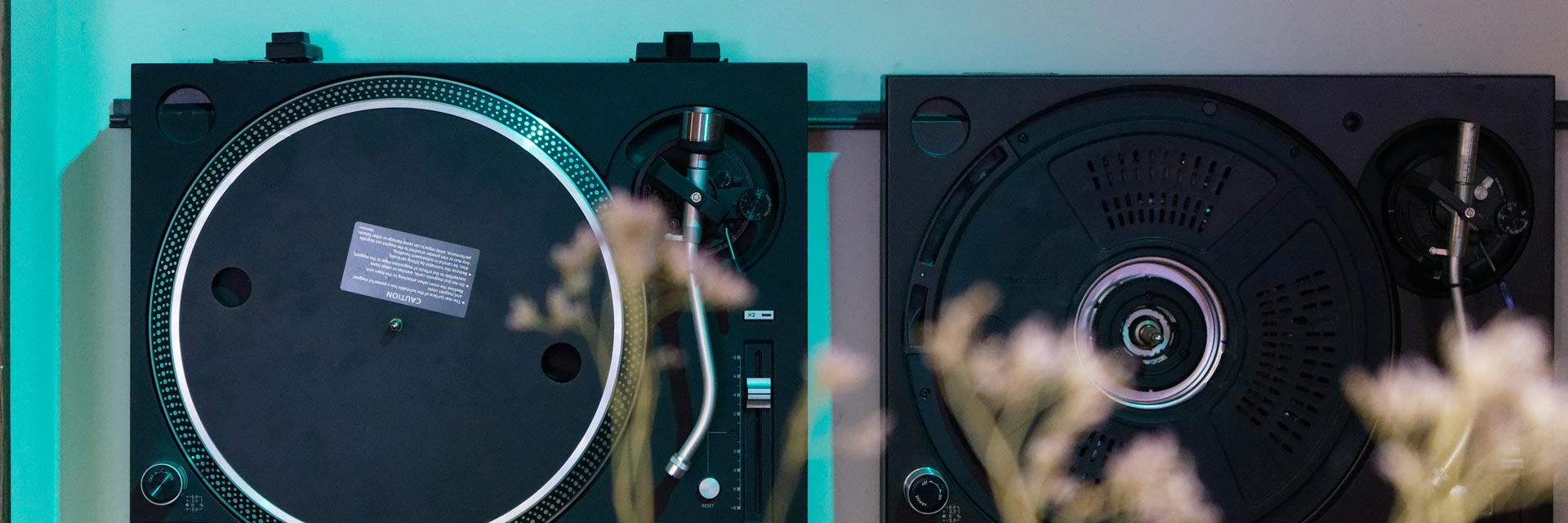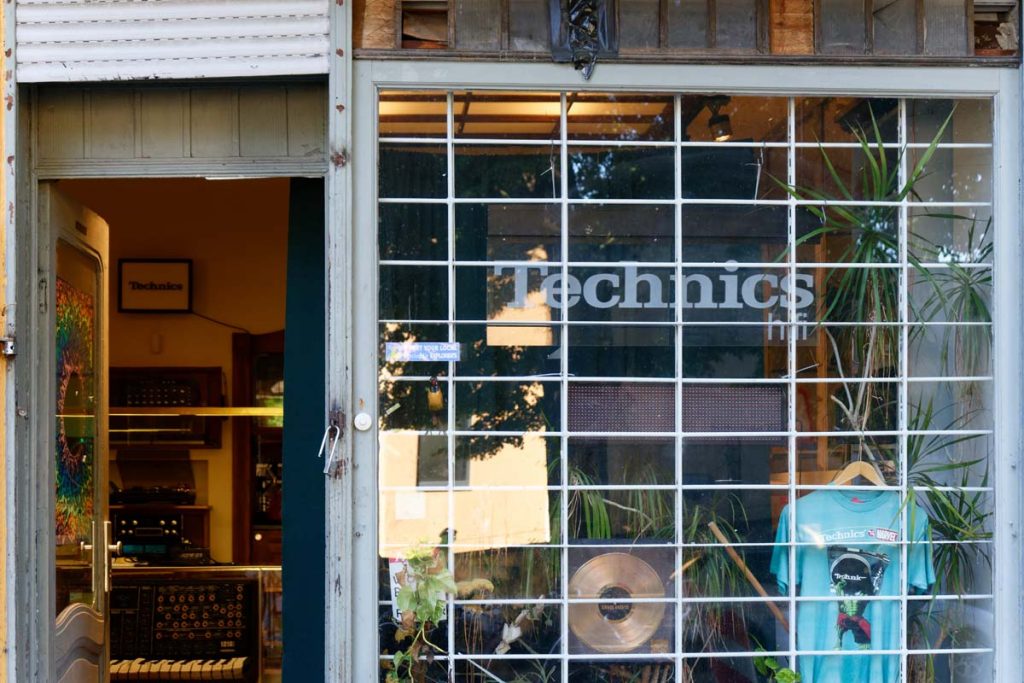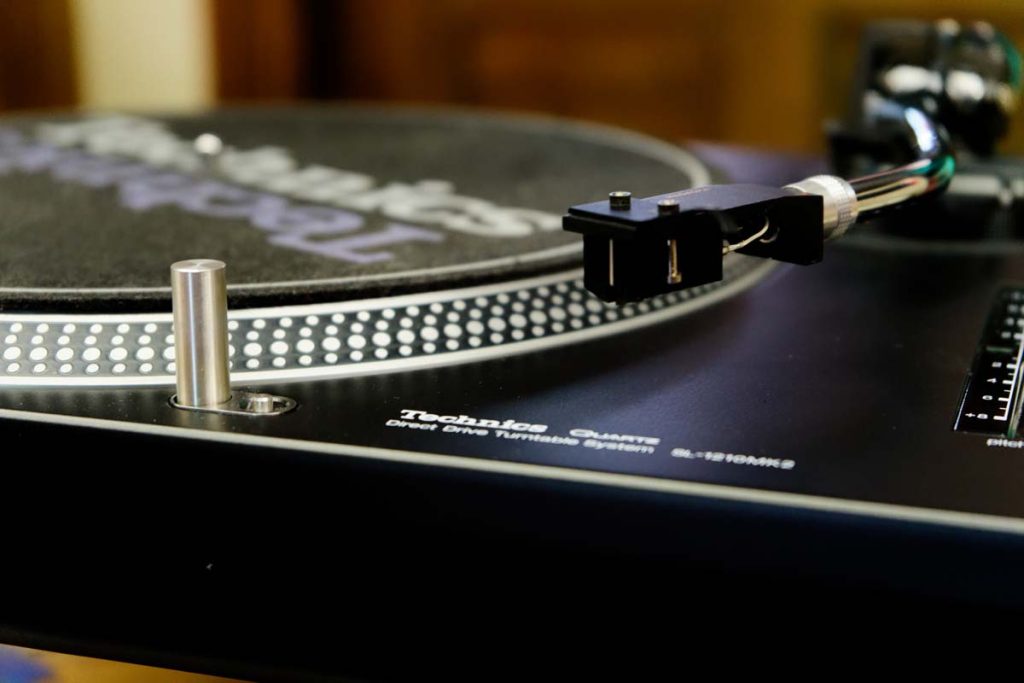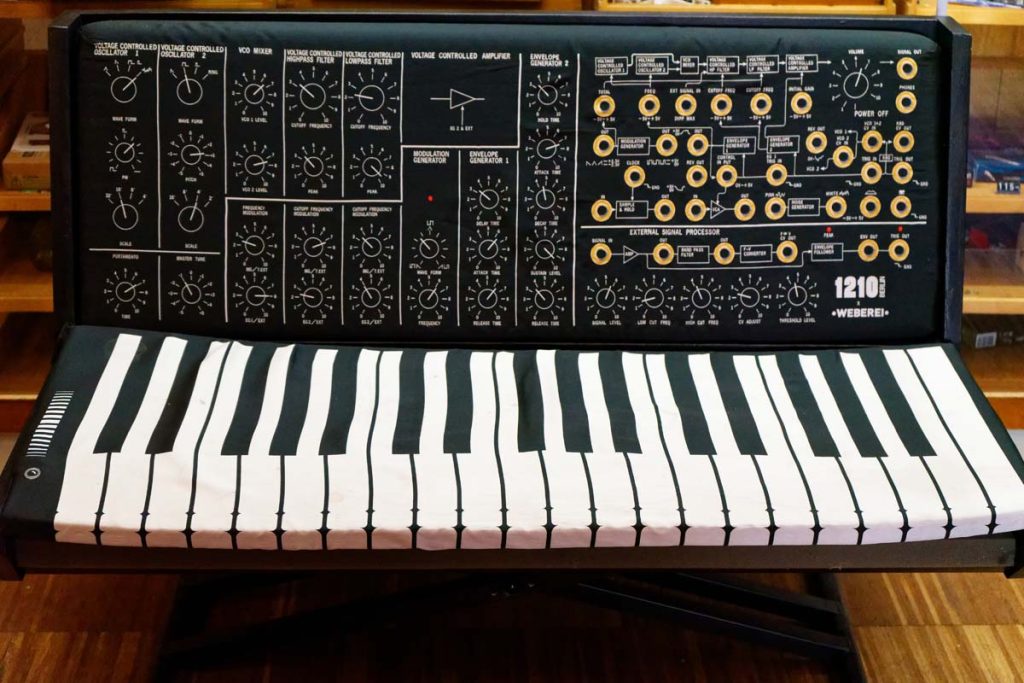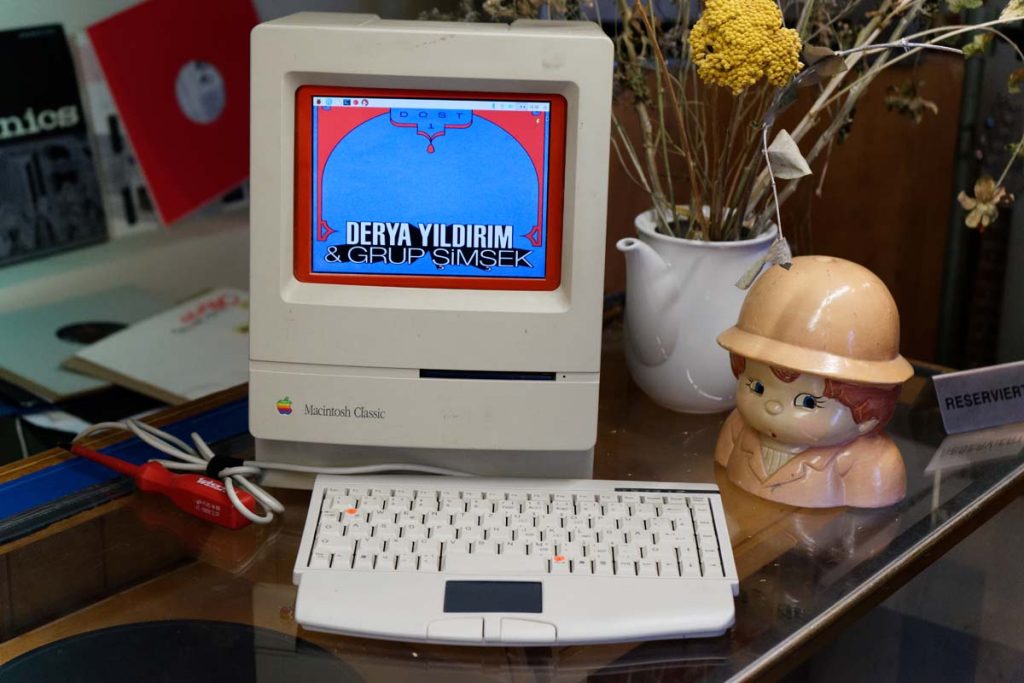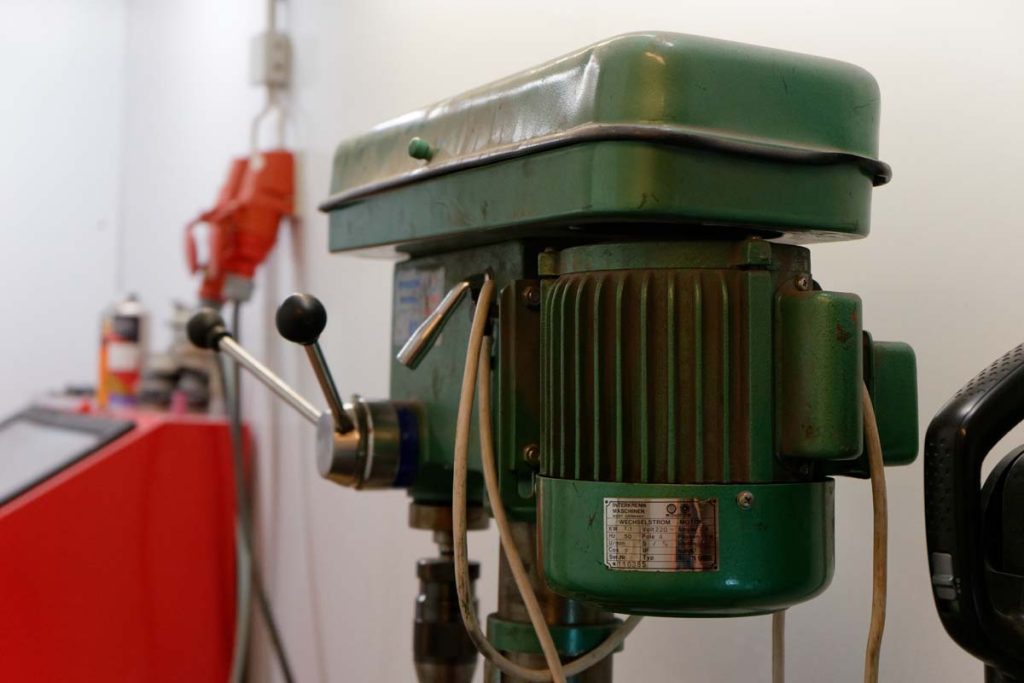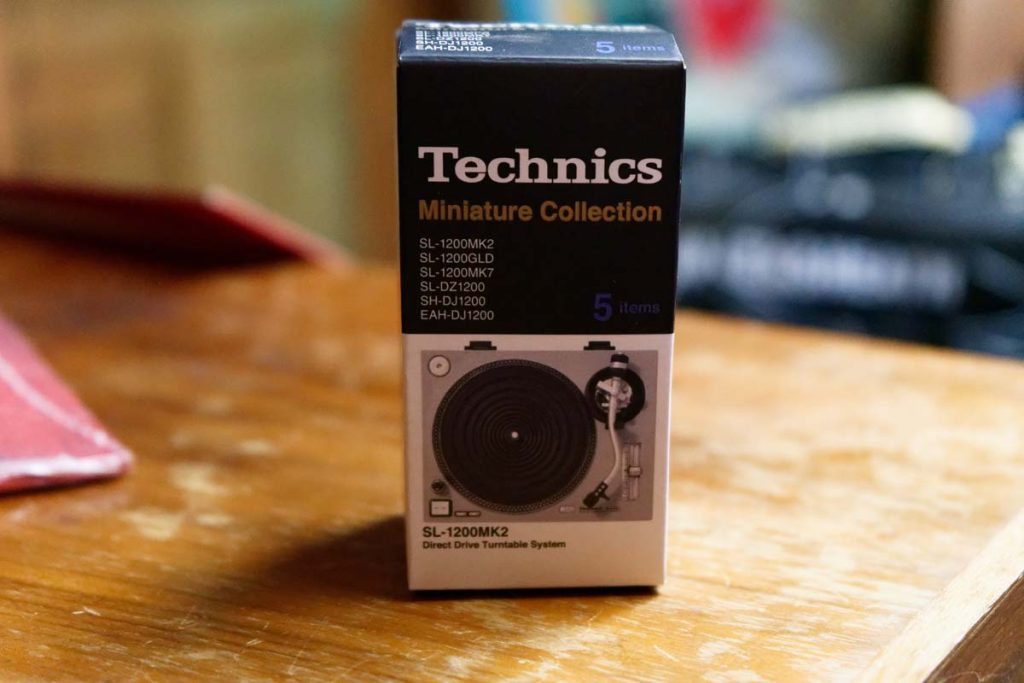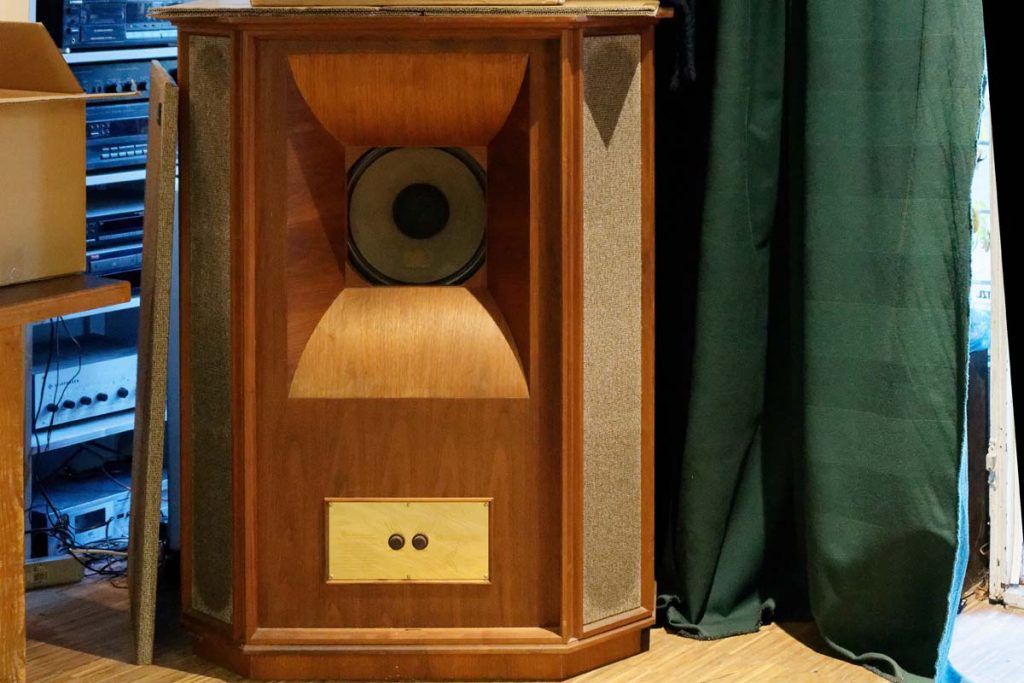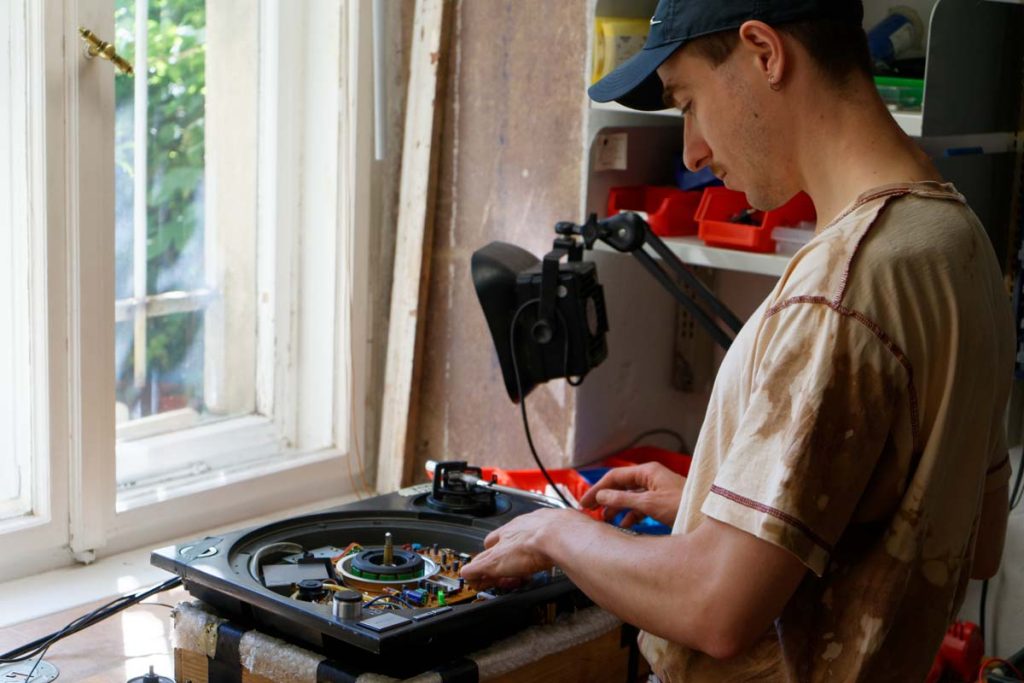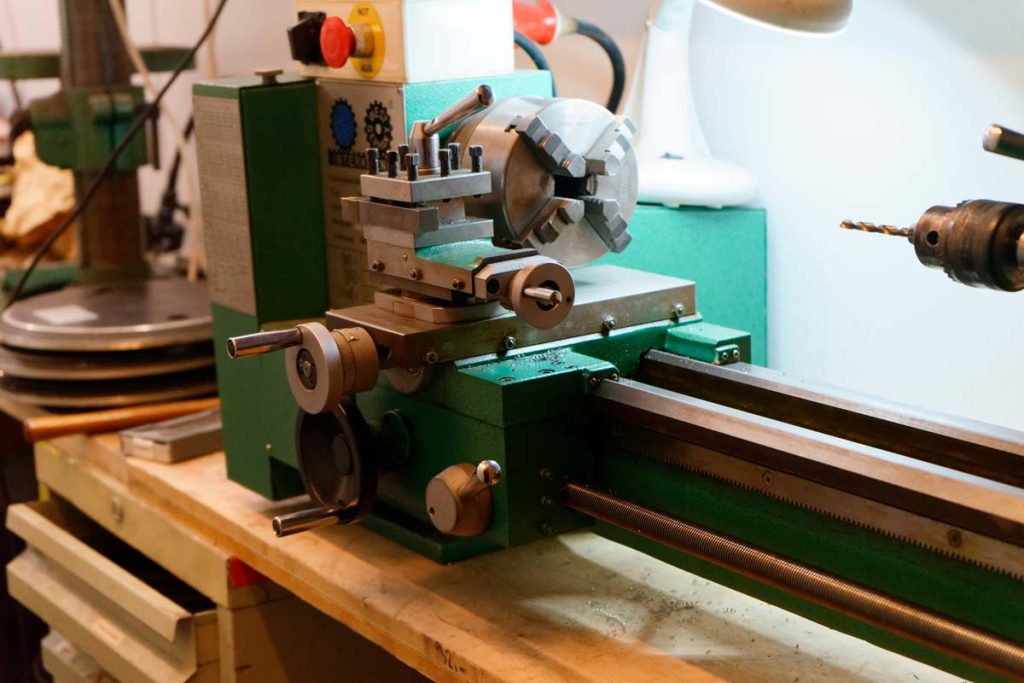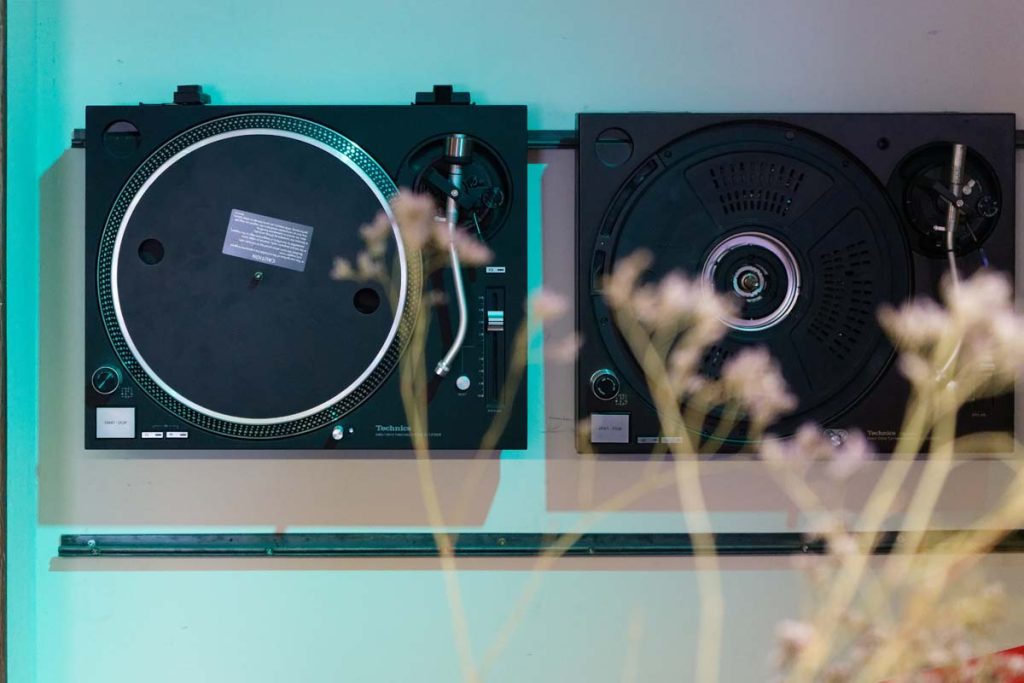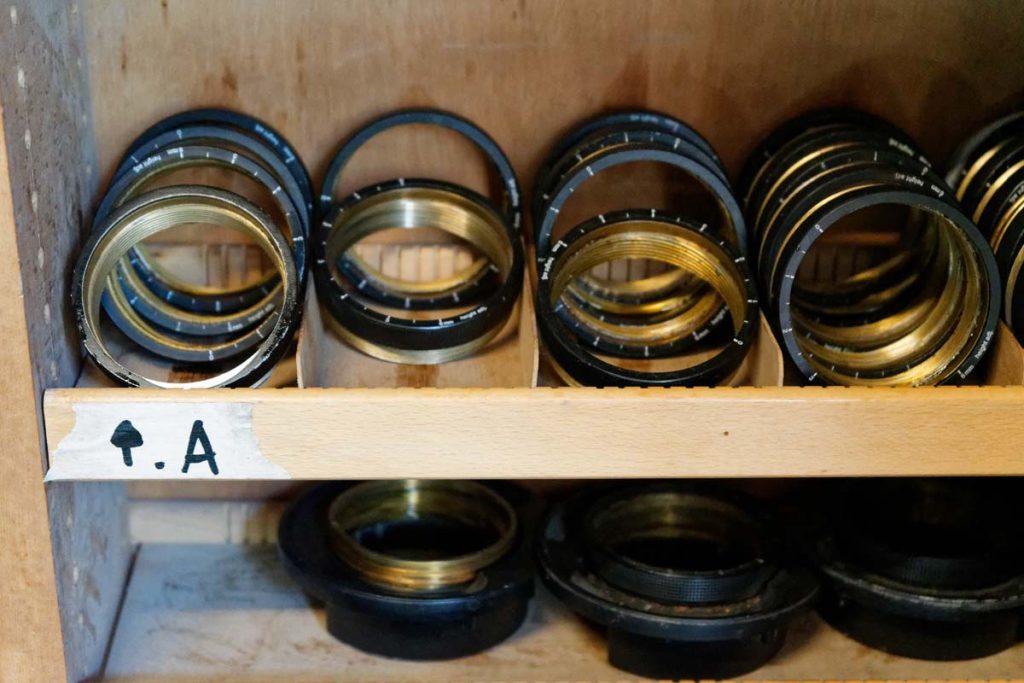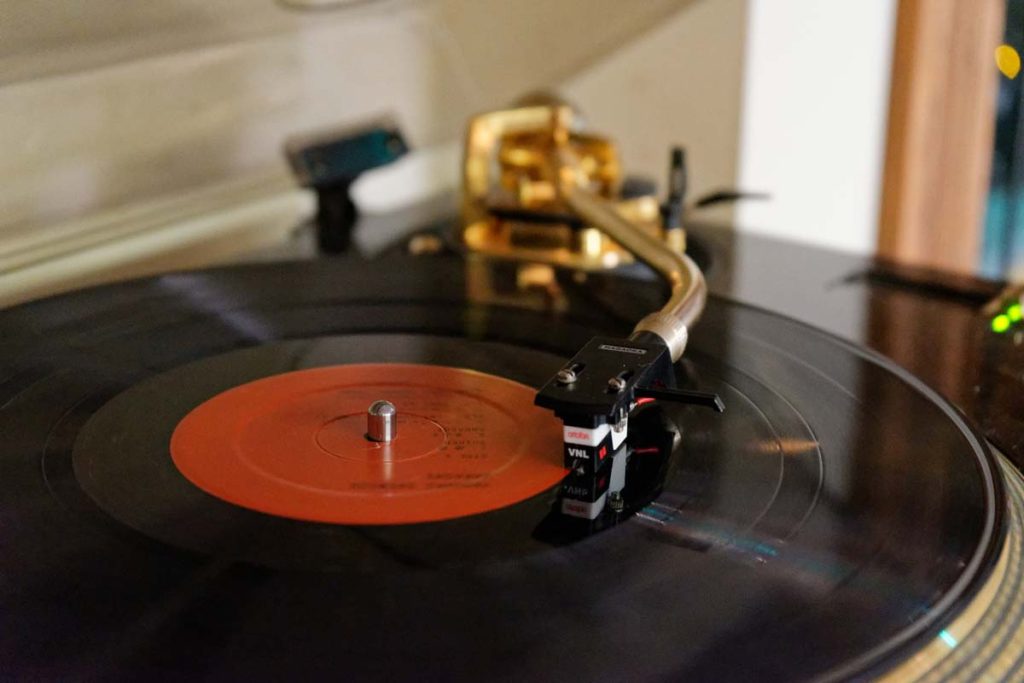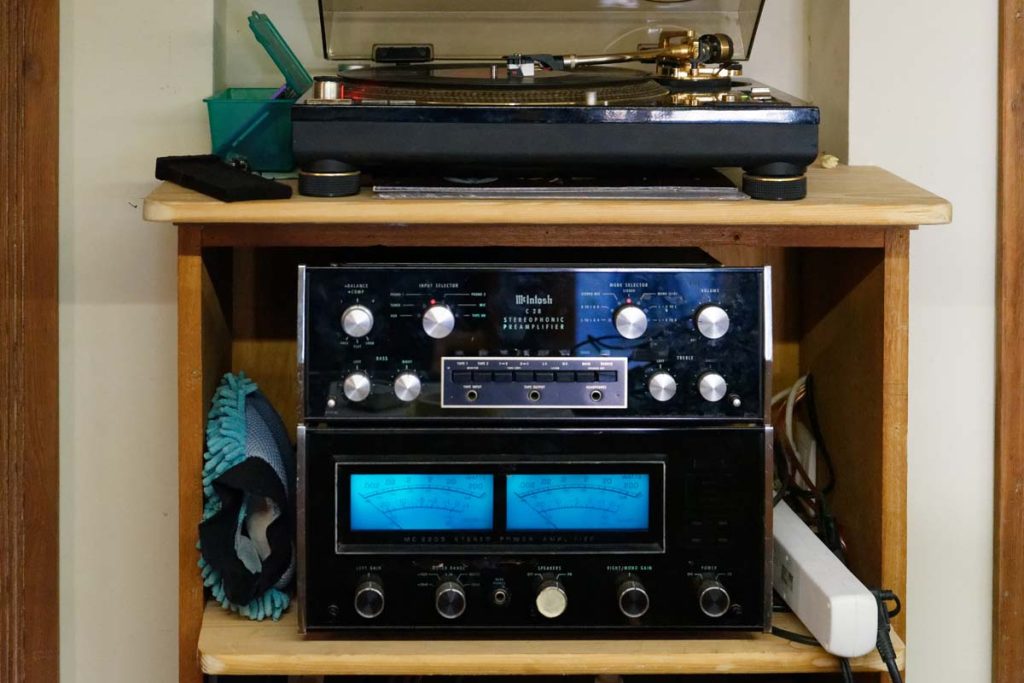Everything revolves around the legendary Technics turntable at 1210berlin.
It’s easy to miss the inconspicuous store window in Berlin’s Reuterkiez district, a corner in the north of Neukölln where luxury renovations and housing decay are often just a block apart. Only a red illuminated sign and a narrow Technics sign tell me that I’ve come to the right place to pay a visit to Germany’s most distinguished specialist in Technics 1210s. Although the company has been around for more than a decade, it has remained an insider’s tip. Nevertheless, the customer list is impressive: In addition to Berlin and Germany-wide club institutions, well-known DJs, as well as any number of private customers, you can also find Panasonic service centers there that no longer have a supply of old parts themselves. At the same time, they don’t see themselves as a pure DJ institution at all. “Actually, we see ourselves as a link between clubs and hi-fi,” explains Timur Üzel after he notices how my gaze lingers on a neatly overhauled McIntosh combo. No, it’s not for sale, it’s for my own listening pleasure. But the beautifully restored pair of Tannoy Westminster, which is currently filling the front of the store with Japanese jazz, is for sale, along with all its accessories. Even if the 1210berlin team specializes in all generations of Technics 1200/1210, the odd gem of audiophile equipment or analog studio technology can also be found in the assortment.
But that’s where the similarities with a dealer end. At the latest when stepping behind the counter of 1210berlin, into the sacred storage and workshop rooms, which reach down to the widely ramified basement, it becomes clear that I am standing in a kind of mad scientist’s lab, where every imaginable utensil is intended to keep a legend alive. This is all miles away from a DIY operation that hobbies old turntables. A precisely defined organizational management system regulates which work processes take place within the Neukölln facility and which are carried out outside the company’s own four walls via an extended workbench. The goal, however, is always to replicate a Japanese precision factory of the 1980s. “For us, it’s now a world of its own, a professional bubble in which we move as soon as we enter the store,” Timur Üzel reports. “We communicate with technics nerds around the world and draw on knowledge from our local network and pass that on to new people on the team. In a way, we are a kind of Hogwarts for the Technics 1210.”
Now, you would assume that a MK 2, insofar as it is used as a hi-fi device, should be pretty much indestructible, with the exception of accidents and improper operation. The situation is different in professional use, even if the turntable has prevailed there precisely because of its robustness. A lot has to happen before a 1210 ends up on the operating table in Neukölln, and often only minimally invasive interventions are necessary, such as replacing the pitch fader or the lighting. With very old models, it also happens that the material of the feet becomes brittle, but open-heart surgery is rather rare. Even tonearms are rarely total losses after enduring tough DJ years. The in-house workshop with its special equipment and expert staff is typically able to get them up-and-running again. On the lathe in the basement, Fabian Bieder, a technician trained at the Helmholtz Institute, and his colleague Mike Giddens modify the tonearms so that they can accept full-fledged Japanese precision ball bearings. The originally installed ball races were not designed for such long-lasting use.
“Refurbished” does not mean that parts are somehow repaired, but that possible weak points of the original are discovered and improved upon. And if nothing else works, there is still the large collection of original NOS tonearms to fall back on. If there are total losses, then this mainly concerns the visual appearance of the 1210: Hard club use or sloppy handling in one’s own four walls can cause serious damage even to the solid surface of a turntable made in Japan. In the workshop I look at a whole pile of such almost mummified chassis tops and then look in amazement at a overhauled 1210, whose chassis is indistinguishable from a new unit.
But 1210berlin is more than just a repair store. They also specialize in special requests and optimization strategies. Currently, conversions to a supplementary 78 rpm, which was only provided for in the MK IV from the factory, are in high demand. It is the large number of DJs who have specialized in swing and tiny-hop. Swing parties have long since become a nerdy metropolitan pleasure that want to be sounded not with mediocre reissues, but with original vinyl. For all conversions and maintenance in matters of electronics, 1210berlin has Andreas Giesecke at its disposal, an electrical engineer with decades of experience who, as Üzel puts it, can talk to ICs. In general, the company lives from a wide-ranging network that guarantees the high standard of the revisions. There are usually three to five permanent employees in the store and workshop, but within the network, more than a dozen people are involved in various special fields.
Now you may wonder at this point what the excursion into the professional world of the 1210 brings you as a friend of audiophile music listening. After all, the 1200/1210 has long been back on the shelves of hi-fi stores as the Model G or also as the GR; and with the MK 7, there is even a remake of the legendary MK 2 available. But only the expensive model G is still made in Japan, the production of the other two was “outsourced” to Asian low-wage countries. If you put a well preserved MK 2, a MK 7 and a GR side by side and then take a closer look at the mechanical quality, you will soon realize what makes a MK 2 made in Japan so special. If you are actually considering the purchase of a 1200 or 1210, which by the way can be found in the equipment pool of some HiFi editors, you should really go for a complete refurbished MK 2. Not only do you get a device that is neither visually nor technically different from a former new device, you also have the opportunity to express some individual special wishes, be it conversions to alternative tone arms or other specials – a lot can be arranged with Timur Üzel and his crew. Since some conversions cost time and some components must first be organized or specially manufactured, a refurbished model is of course not “to go” to have; but since this is certainly a Technics for life – which is not necessarily the case with the MK 7 or GR – it comes here on a few days delivery time really does not matter; and with around 1200 euros, one is priced even below the model GR. So there are several reasons to contact the 1210berlin team if you are interested.

